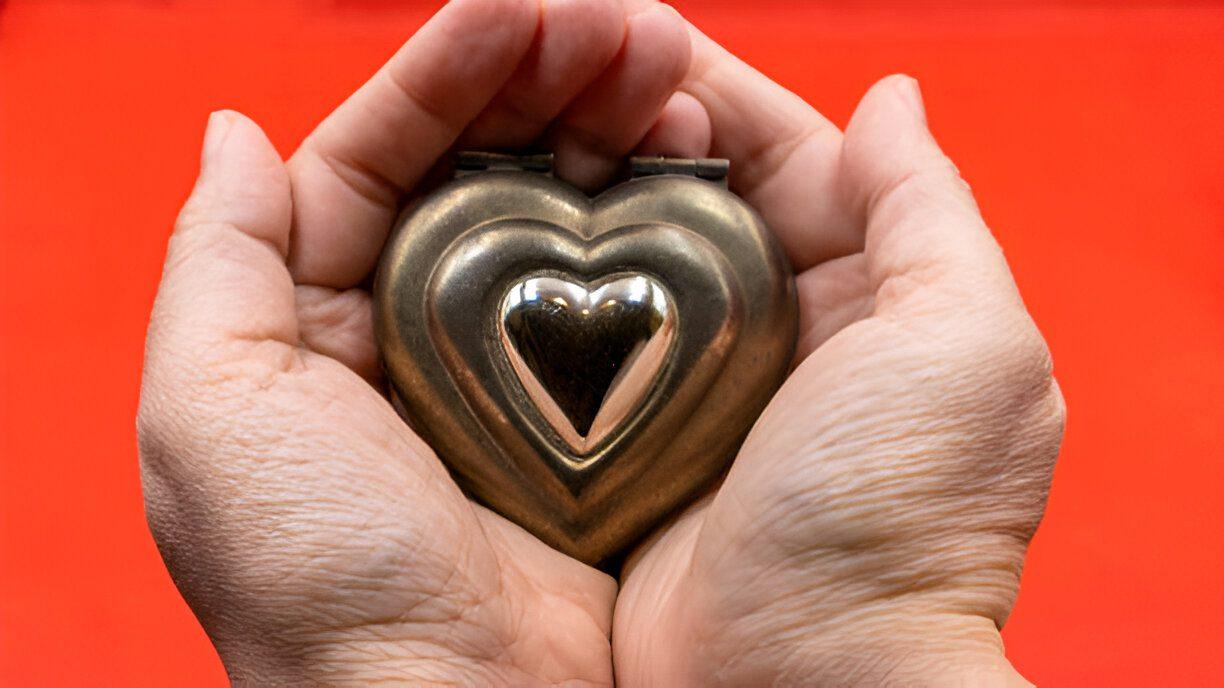Where Loss and Identity Converge
Loss doesn’t just live in our memories—it weaves into our sense of self, influencing how we view the world and where we find meaning. According to recent findings on X, over 70% of people say a key loss was pivotal in shaping their identity. In this article, we explore the nuances of intertwining grief and self-concept, revealing how acknowledging this bond can lead to both acceptance and growth.
“I never understood how much my father’s passing defined me—until I realized every choice I made was somehow honoring or remembering him.”
When Identity and Loss Intertwine

A Tapestry of Grief and Self-Discovery
Loss can leave an indelible mark on who we are. Whether stemming from the death of a loved one, a life-altering event, or the fading of something once central to our identity—like health or a cultural root—this imprint can redefine our very sense of self. Statistics on X show that over 70% of individuals cite a major loss as crucial in shaping their core identity. It’s not merely about what happened in our past but how it resonates in our present and informs our future.
Understanding Identity Linked to Loss
Loss as an Identity Marker
Loss can become a defining feature of one’s self-concept. For some, it brings strength, as they identify as survivors or advocates. For others, it signifies a profound void, a reminder of something cherished and irreplaceable. This identity can be both empowering and burdensome, depending on how it is integrated into life’s narrative.
Grief as a Continuous Journey
Unlike other experiences that fade or evolve, loss-related identities often persist. Grief doesn’t disappear but becomes a part of life’s backdrop, influencing values, relationships, and decision-making. It’s not about “getting over” loss but learning to live with it in ways that honor both the pain and the growth it brings.
The Dynamics of Loss and Identity
- Integration vs. Disintegration
Some people incorporate their losses into a cohesive sense of self, finding meaning and resilience. Others may struggle, experiencing fragmentation and identity crises that leave them feeling adrift. Both responses are valid and deeply human. - Cultural and Social Narratives
The way society frames loss significantly impacts personal identity. In cultures where overcoming adversity is celebrated, loss may become a badge of honor. In others, where mourning is private or extended, loss might remain a quiet but profound cornerstone of one’s identity.
Challenges and Growth
- The Burden of Identity
When loss defines too much of one’s identity, it can lead to feelings of stagnation or fear—fear of new attachments, fear of moving forward, or fear of forgetting. - Post-Traumatic Growth
Many find that their loss becomes a catalyst for profound growth. Post-traumatic growth is the positive psychological change that arises from adversity, leading to stronger relationships, greater appreciation for life, and new purpose. A man who lost his partner described how the experience deepened his empathy: “I learned to listen in ways I never had before. It’s like a gift born from the pain.”
“Loss is a thread in our tapestry, but it’s never the whole design.” — Marisol G.
Navigating an Identity Tied to Loss
- Acknowledgment of Grief
The first step in navigating this identity is recognizing grief’s role. Understanding that loss shapes perspectives and decisions allows for greater self-compassion and intentional living. - Therapeutic Exploration
Therapies like narrative therapy can help individuals revisit their story of loss, discovering new meanings or reframing how they see themselves within that narrative. A woman who lost her career due to illness shared in therapy, “I thought I was just ‘what I could do.’ Now I see I’m also ‘who I am.’” - Community and Shared Experiences
Finding spaces where others understand the nuances of loss—whether through support groups, cultural rituals, or shared storytelling—can offer validation and solidarity. These communities remind individuals that their loss is a thread woven into a collective fabric, not a solitary burden. - Rituals and Memorialization
Rituals help transform grief into a living part of one’s identity. Whether it’s lighting a candle, planting a tree, or journaling daily reflections, these practices honor the loss while fostering a sense of continuity and healing.
Reframing Identity
Balancing Loss with Gain
Honoring loss while nurturing other aspects of identity is essential. Joy, achievement, and new beginnings can coexist with grief, creating a fuller, richer sense of self.
Expanding Beyond Loss
Encouraging exploration beyond the shadow of loss can lead to personal enrichment. Taking up a new hobby, joining a community, or pursuing an education opens pathways to redefine and expand identity.
Things To Try This Week!
- Symbolic Object: Select one meaningful item related to your loss—a keepsake or memento—and place it in a visible spot. Let it remind you of both the pain and the strength you carry forward.
- Routine Ritual: Incorporate a small daily or weekly practice—like lighting a candle or writing one line of gratitude—for the aspects of your identity that loss has shaped.
- Creative Reflection: Try painting, songwriting, or another expressive outlet to explore how your identity has evolved through loss. Let creativity be your voice when words fall short.
Conclusion
When identity is tied to loss, it becomes a part of the narrative that defines us—but it doesn’t have to confine us. Loss can be a painful cornerstone, but it can also be a foundation for resilience, empathy, and connection. By acknowledging the impact of loss, honoring its place in our story, and allowing space for growth, we become not just shaped by our experiences but transformed by them. In this way, loss weaves itself into the complex, beautiful tapestry of who we are—forever part of our identity, yet never its entirety.
Loss can feel like a constant companion, but it doesn’t need to define every aspect of you. Even as you honor the ways grief has shaped your identity, remember to cherish the evolving person you’re becoming.
In our All Things Cherish collection, discover gentle reminders and thoughtful keepsakes that pay tribute to your journey—inviting you to blend remembrance with renewal and find warmth in the growth that follows every loss.
Finding Comfort, One Heartfelt Step at a Time
No matter where life takes you, caring for your emotional well-being should always have a place in your daily routine. Our All Things Cherish collection offers soothing keepsakes, reflective prompts, and heartfelt resources crafted to nurture hope in every season. Let us walk beside you on the path to renewed strength and lasting peace—click here to explore and embrace all that cherishing yourself can bring.
More Reflections, More Growth
Loss is complex, and the road to healing is different for everyone. These reflections offer insight, support, and guidance as you navigate this journey.
Finding Hope Amid Economic Challenges: Strategies for Renewal and Growth
Economic hardships can feel overwhelming, but they also present opportunities for growth and resilience. Discover practical strategies and emotional tools to navigate financial difficulties, reclaim stability, and embrace hope for a brighter future.
Grieving the Loss of a Familiar Home: Finding Hope and New Roots
A home is more than a place; it’s a collection of memories and milestones. Grieving the loss of a familiar home is valid and personal. Discover how to process the grief, honor its memory, and adapt to new surroundings in meaningful ways.
Building Connections After Relocation: Turning New Places into True Homes
Relocating to a new place offers the chance for a fresh start, but building connections can be challenging. From exploring neighborhoods to tapping into professional networks, this guide offers heartwarming and actionable steps to help you build lasting relationships and create a new sense of belonging.
Building Connections After Relocation: Turning Strangers into Neighbors
Relocating to a new city or country can be daunting, but building meaningful connections can make the transition smoother. From joining clubs to reaching out to professional networks, this guide provides practical steps to help you feel at home in your new community.
When a House Is More Than a Home: Grieving Its Loss and Finding Hope
A house is not just a place—it’s a reflection of identity, a vessel for memories, and a source of stability. Losing it can stir profound grief. This guide explores how to process that grief, honor the home’s role in your life, and find ways to rebuild and create new roots.
The Emotional Toll of Separation
Separation is more than a life change—it’s an emotional journey filled with grief, self-discovery, and transformation. Learn strategies to navigate this difficult transition and build a hopeful new chapter.
When Ambition Meets Grief: Navigating the Loss of a Business You Built
Closing the business you’ve poured heart and soul into isn’t just a financial setback—it’s a deeply personal loss. In many ways, it mirrors the stages of grief, from denial to acceptance. This guide addresses the emotional, practical, and...
A New Chapter Unfolds: Coping with Job Loss and Finding Hope
Job loss can feel like a profound setback, impacting your identity and security. Discover practical steps, emotional recovery strategies, and ways to rebuild your life with purpose and resilience.
Finding Your Next Chapter: Rediscovering Yourself After a Life Change
Life changes can redefine who you are, challenging your sense of identity and direction. Discover how to navigate transitions, embrace growth, and rediscover your true self with intention and resilience.
Explore Journeys of Healing and Solace:
Discover dedicated spaces that offer understanding, guidance, and connection through grief. From the loss of loved ones to life’s challenging transitions, each category provides a pathway to reflect, connect, and find peace in shared experiences.


























